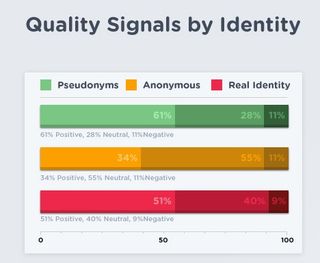A Post PIPA Post
On my way from a breakfast meeting to the office yesterday I got a phone call on my cell phone with a 202 area code on it. I picked up the call and on the other end of the line was someone in Congress who I've known for a decade or more. He told me that the Senate Majority Leader Harry Reid was going to pull the PIPA bill in about thirty minutes. He also told me that the technology/Internet community had done a great job fighting the SOPA and PIPA bills and that the fight was over for now. I thanked him for the call and then I told him that we need to find a different way to address the online piracy problem because otherwise the technology community was in for a game of whack a mole with the content industry every year or two with our elected officials getting caught in the middle. He agreed.
I'm not in the mood to celebrate in the wake of the news that SOPA and PIPA are dead. Because the online piracy issue is still very much on the table and the content industry is not going to just walk away from the it. And as I've said in most every post on this issue, I am sympathetic to their concerns.
I think what Anonymous did in the wake of the Megaupload shutdown is deplorable and I am not a fan of vigilantes and mob rule. In stark contrast, I am extremely proud of the online demonstrations we all participated in over the past month to change the mood in Washington over the two bills. We showed that the Internet can be a medium for "peaceful demonstration" and we do not need and should not resort to stunts like Anonymous pulled this week.
I'd like to make a couple points about this whole SOPA/PIPA fight and then go on to where we go from here.
First, the Internet community's opposition to these two bills was never coordinated by a central organization. When my partner Albert first raised the alarm bells on what was then called COICA back in September 2010, we could not find anyone other than a few policy wonks who had this on their list of issues. Our industry does not have an MPAA or an RIAA. For the past 15 months we have been working with various individuals, a few companies, and a few advocacy groups to fight these bills. We found each other over the Internet, coordinated efforts (or not) over the Internet, and used the Internet to protect the Internet. The opposition was chaotic, distributed, diverse, uncoordinated and extremely effective in the end. Just like the Internet.
Second, these two bills were drafted by the MPAA and the RIAA and walked into Washington without an iota of conversation with the technology industry. I can't tell you how many Senators and Representatives have told me that they were told by the MPAA and the RIAA that the technology industry was on board and that these issues would not impact the Internet and tech community adversely. This is no way for one industry to propose that Congress regulate another industry. I think it is absurd that one industry would have the arrogance to think it is appropriate to ask Congress to regulate another industry for them. And yet that is what went down on these bills.
So where do we go from here? I think we should come up with an entirely new framework to think about online piracy. The PIPA/SOPA framework was litgation heavy and very invasive. It was "we are going to do this to you." It's not surprising the tech industry didn't like it one bit.
We need a new framework that is based on a shared set of goals and objectives. The tech industry will benefit if the content industry makes more money online. And though they seem not to believe it, the content industry can make a lot more money online. So we should be able to get alignment around that issue. We can help each other. The tech industry has already helped the content industy many many times. On that topic, I love this Nat Torkington rant:
All I can think is: we gave you the Internet. We gave you the Web. We gave you MP3 and MP4. We gave you e-commerce, micropayments, PayPal, Netflix, iTunes, Amazon, the iPad, the iPhone, the laptop, 3G, wifi–hell, you can even get online while you're on an AIRPLANE.
So I've been busy over the past few days thinking about a framework that is based on a partnership between the content and technology industries. I have a bunch of ideas on this and I've heard a number of good ideas from others in the past few days as well. I have no doubt that a group of leaders from the tech community would be happy to sit down with the content industry and come up with an entirely new way to think about and address online piracy. But before that happens, the content industry, as represented by the MPAA and the RIAA, needs to understand that a litigation heavy invasive approach will not fly and they need to forget about that framework and come ready to come up with an entirely new one. I hope they can do that.








